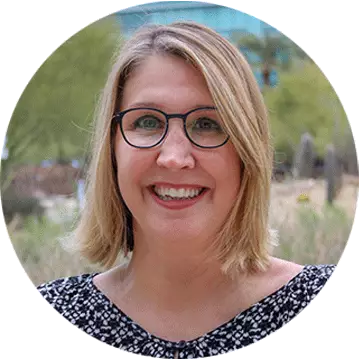
Written by Dawn Handschuh

Reviewed by Chris Conway, Director of Financial Education Initiatives and Repayment Management

Written by Dawn Handschuh

Reviewed by Chris Conway, Director of Financial Education Initiatives and Repayment Management

Figuring out how to pay for college can be daunting. The limited time you have to secure sufficient funding for tuition may make developing a financial plan not only challenging but also stressful enough to potentially let down your guard when it comes to scams disguised as opportunities.
Fraudulent businesses such as self-proclaimed scholarship search services or scholarship clearinghouses may advertise in reputable publications or mail you letters containing toll-free phone numbers and websites, but that doesn’t mean they’re necessarily trustworthy.
Here, we explore when to believe a legitimate scholarship opportunity and when to beware of scholarship scams.
According to the Federal Trade Commission (FTC), students should be wary of certain language that’s frequently used in scholarship scams to separate you from your money. Such wording may include:
It’s not unusual to see advertisements for a financial aid or scholarship seminar. While some are legitimate, such as those offered by reputable institutions or schools, others are cleverly framed sales pitches for overpriced loans or scholarship consulting services.
Before attending a workshop or seminar, do an online search using the organization’s name followed by “scam” or “complaints,” and see if this turns up anything concerning. Don’t pay any fees at the seminar regardless of what company representatives may tell you about missing a limited-time opportunity.
Scammers may use words like “national,” “federal,” “administration” or “foundation” as part of their company name to sound as if they represent a branch of the government or a nonprofit group. (Many of these words are actually part of legitimate organizations, making their adoption by fraudulent endeavors that much more confusing.) Often, these names are just a slight variation of the name of a real government agency. Fraudulent entities may even appropriate certain seals used by federal agencies in their literature to imply an endorsement or authorization.
Other scholarship scams can happen over the phone. Your caller ID, for example, may indicate that the phone call about the federal grant you just won is coming from Washington, D.C., but scammers located elsewhere can use technology to “spoof” the call to make it appear it’s coming from an expected location when really it’s being placed from someplace else.
According to the Better Business Bureau (BBB), one scam involves sending a scholarship check along with a request that you remit payment for taxes or other charges. The check turns out to be bogus and whatever money you sent is lost. Remember, it’s illegal for anyone to charge you to better your chances of receiving a federal grant.
Here’s what you can do if you experience any of these red flags when seeking scholarship assistance or funding:
While there are legitimate firms that offer scholarship assistance, the BBB reminds students they can often find the same awards by searching online themselves or turning to the financial aid office at the college they plan to attend.
Additionally, you don’t have to pay for help with federal student loans or with completing the FAFSA form. Free help is available at your school’s financial aid office, at the FAFSA website or the Federal Student Aid Information Center via phone call, email or online chat. Additionally, the studentaid.gov website provides resources for legitimate scholarships and how to avoid scams.
Before handing over payment for a commercial scholarship service, stop and consider what you’re paying for. Is it worth it? Does it seem too good to be true?

Dawn Handschuh has been putting pen to paper for more than 30 years, writing widely on topics related to student lending, personal finances, everyday money management and retirement planning. She makes her home in Connecticut with her husband and two energetic German shepherds.

As Director of Financial Education Initiatives and Repayment Management, Chris Conway works with departments across the University to provide resources that allow students to make more informed financial decisions. She is also an adjunct faculty member for the Everyday Finance and Economics course at the University, and she chairs the National Council of Higher Education Resources College Access and Success Committee. Conway is committed to helping college students make the right financial decisions that prevent future collection activity.
This article has been vetted by University of Phoenix's editorial advisory committee.
Read more about our editorial process.
Read more articles like this: